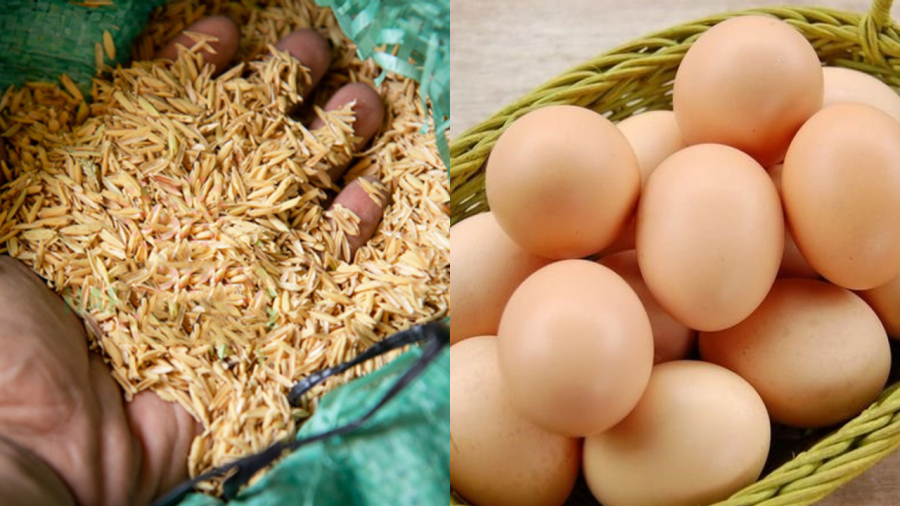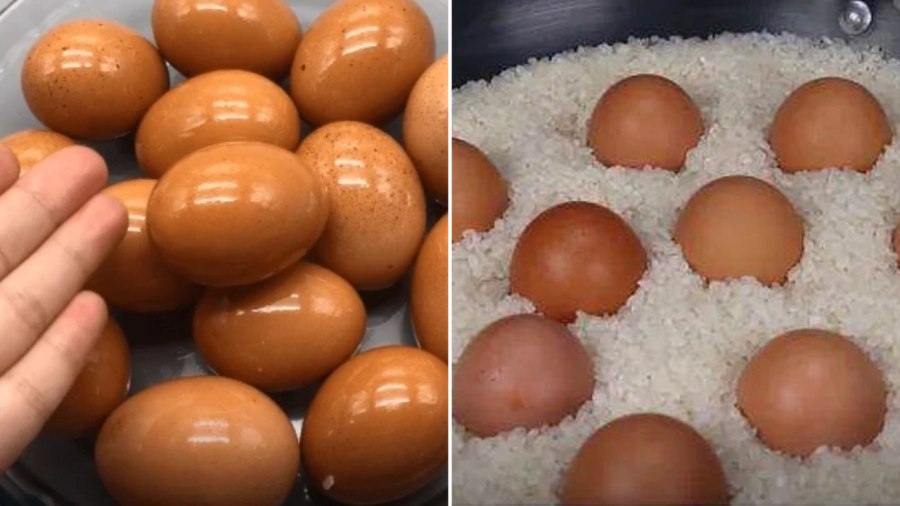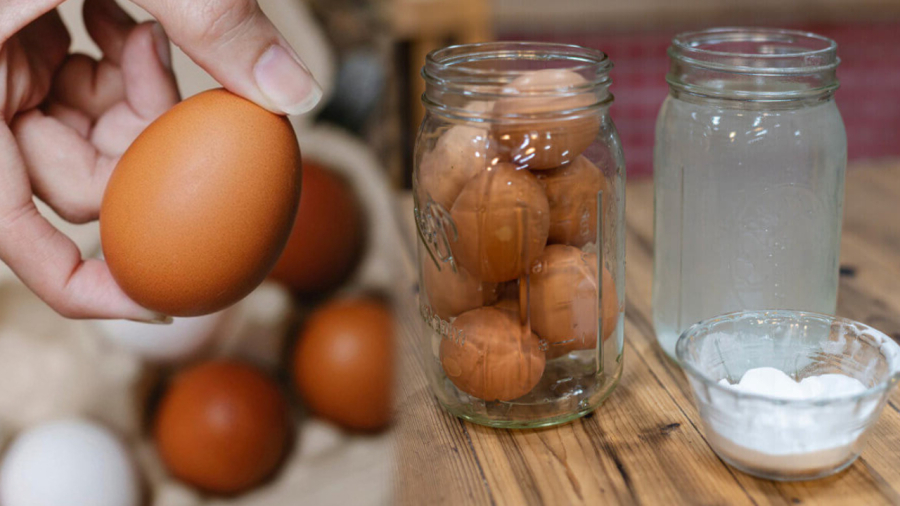Egg Preservation Using Rice Husk
This traditional egg preservation method is still used today. It involves spreading a layer of dry rice husks in a clean container, then carefully arranging the eggs on top. After each layer of eggs, another layer of husks is sprinkled on top. It’s important to orient the eggs vertically, with the broader end facing upwards, to prevent the yolk from sticking to the shell. Finally, cover the surface of the eggs with another layer of husks and store the container in a cool, dry place. Sawdust or cooled ash can be used as alternatives to rice husks. After about two weeks, you can open the container to check on the eggs, which should remain fresh for up to two months using this method.

Rice husks have long been used as a traditional method for egg preservation.
Egg Preservation Using Dried Tea Leaves
You can utilize dried tea leaves to preserve eggs by thoroughly drying the leaves and following a similar process as the rice husk method.
Egg Preservation Using Salt
Eggs can be buried in a container of salt, which has antibacterial properties and can keep them fresh for several months.
Egg Preservation Using Vegetable Oil
This preservation method is favored by some European chefs. It involves cleaning the eggs and then coating them with a thin layer of vegetable oil before storing them in a cool, ventilated area. This technique can maintain the freshness of eggs for about a month.

Eggs can be preserved by coating them with a layer of vegetable oil or by burying them in a container of rice or other cereals.
Egg Preservation Using Cereals
In the past, people often utilized containers of cereals such as soybeans, black beans, adzuki beans, corn, rice, and other grains to preserve eggs. The eggs were placed among the cereals and stored in a cool, dry place.
Egg Preservation Using Limewater
Create a limewater solution by mixing lime powder with water to a concentration of about 2-3%. Allow the mixture to settle, then remove the opaque white membrane that forms on the surface. Carefully pour off the clear limewater and fill a glass, ceramic, or plastic container with it. Submerge the eggs completely in the limewater, ensuring the liquid level is at least 20cm above the eggs. Do not use metal containers as lime can react with metals. Store the container in a cool, dry, and shaded place. This method can preserve eggs for up to six months.

Egg preservation using limewater is also known as the water glassing eggs method.
Additionally, you can create a 5% limewater solution, soak the eggs in it for a few minutes, then remove them and let them air dry before placing them in a container. This method will keep eggs fresh for three to four months.
The Ultimate Guide to Washing Produce: Avoid These 3 Common Mistakes That May Do More Harm Than Good
“Rinsing vegetables with these three common habits can do more harm than good. In fact, these washing methods can cause a deeper penetration of toxins, putting your health at risk. Discover the three wrong ways to wash your veggies, as revealed by Dr. Tan Dunci from Taiwan’s Chang Geng Memorial Hospital, and learn how to effectively rid your produce of harmful pesticides.”



































